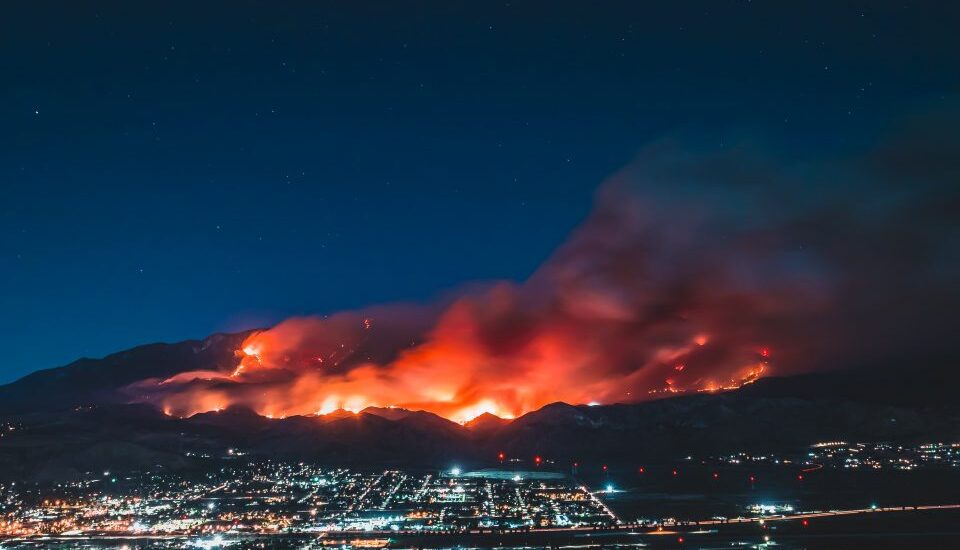- October 23, 2020
- Posted by: Felix Gomez
- Category: News

California wildfires have become a regular and growing threat. If you live in an area that’s threatened by these extreme and damaging events one of the best things you can do is to be prepared. Here are some things to consider when it comes to fire damage.
Be Safe
You need to be ready if a wildfire strikes. Surviving a wildfire requires being ready to go, knowing when to evacuate, and what to do if you become trapped. Here’s what to do before a disaster occurs.
- Prepare:
- Have unexpired fire extinguishers and know how to use them.
- Know where gas, electric, and water main shut-off controls are located and how to safely shut them down.
- Assemble emergency supply kits for everyone in your house.
- Have an emergency contact numbers list near a phone and in emergency supply kits.
- Have a spare emergency supply kit in your car.
- Have a portable radio or scanner to stay updated on the fire.
- Keep a pair of shoes and a flashlight near your bed in case you need to evacuate at night.
- Tell your neighbors about your wildfire action plan.
- Plan:
- Designate a meeting location outside the fire area so you can see who’s safe.
- Have and practice several different escape routes from your home and community.
- Create an evacuation plan for pets and other large animals.
- Make a family communication plan that designates an out-of-area friend or relative as a point of contact to act as a single source of communication among family members in case of separation.
- Have a place out of the area to go such as friends, family, hotels, motels, and campgrounds. Keep COVID-19 precautions in mind.
- Monitor wildfires in your area and know your community’s emergency response plan, evacuation orders, evacuation centers, and if they’ve been adapted for COVID-19.
- Complete pre-evacuation preparation to increase your home’s defense, if time allows.
- Cover yourself with long pants, a long sleeve shirt (all cotton works best), heavy shoes/boots, a cap, a dry bandanna to cover your face, and goggles or glasses to protect against heat and flying embers.
- Emergency Supply Kits – Assemble one for everyone in your household and keep it easily accessible in case of evacuation. Kits should be created with COVID-19 in mind, cover extended periods of time away from home, be easy to grab (like a backpack), and easy to transport (like a tub or chest on wheels for food and water). Your kits should have these things:
- Face masks or coverings
- Three-day supply of non-perishable food and three gallons of water per person
- Map marked with at least two evacuation routes
- Prescriptions or special medications
- Change of clothing
- Extra eyeglasses or contact lenses
- An extra set of car keys, credit cards, cash, or traveler’s checks
- First aid kit
- Flashlight
- Battery-powered radio and extra batteries
- Sanitation supplies
- Copies of important documents (birth certificates, passports, etc.)
- Food and water for pets
- If time and space allow, easily carried valuables, family photos/irreplaceable items, computer information on hard drives and disks, and chargers for cell phones, laptops, etc.
Be Smart
After making sure that everyone is safe, you’ll want to minimize your financial damage that can come with wildfires. From temporary relocation expenses and lost salary to property damage and destruction, here’s what wildfire insurance can do.
- Relocation Expenses – If your home is uninhabitable due to a wildfire, your policy will reimburse you for any living expenses you incur (such as a hotel room, meals out, etc.).
- Lost Salary – According to the California Employment Development Department, people who lose wages due to wildfires can apply for disaster unemployment assistance (DUA).
- Property Damage – A standard homeowner’s policy covers damage and destruction caused by fire (including wildfires). The policy will pay to repair or rebuild your home (including detached structures like garages and sheds), and remediate smoke damage. Condo or co-op owners should check with their by-laws or lease to determine insurance responsibilities. A homeowner’s, condo, or renter’s policy also insures your belongings for loss or damage, including coverage due to theft or vandalism (such as looting).
For more information on how to protect you and your family from wildfires, you can get in touch with us or check out the resources, such as a wildfire map, available from Cal Fire at their website Ready for Wildfire.
